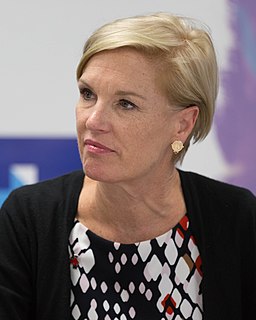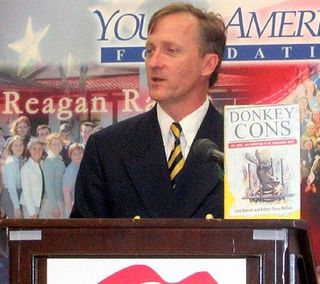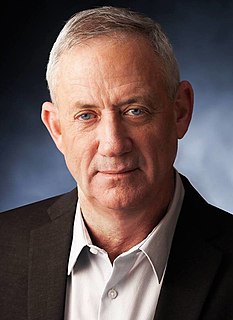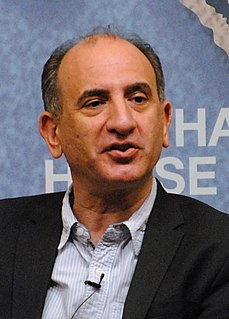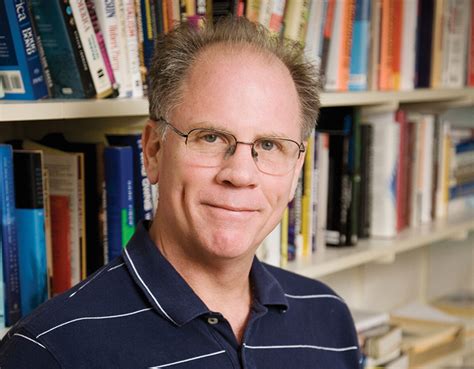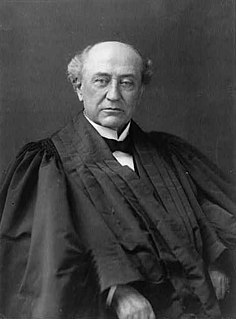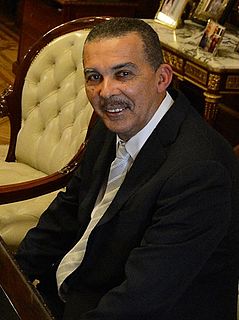Top 1200 Educational Institutions Quotes & Sayings - Page 2
Explore popular Educational Institutions quotes.
Last updated on April 22, 2025.
A new educational system in which all children born shall have the same advantage of physical, industrial, mental and moral culture, and thus be equally prepared at maturity to enter upon active, responsible and useful lives. . . . In so doing, it strikes a fatal blow at . . . the most demoralizing of all monopolies. . . educational superiority.
There is no such thing as educational value in the abstract. The notion that some subjects and methods and that acquaintance with certain facts and truths possess educational value in and of themselves is the reason why traditional education reduced the material of education so largely to a diet of predigested materials.
Few white citizens are acquainted with blacks other than those projected by the media and the so--called educational system, whichis nothing more than a system of rewards and punishments based upon one's ability to pledge loyalty oaths to Anglo culture. The media and the "educational system" are the prime sources of racism in the United States.
Whatever you want to call it, socialism, liberalism, this is who they are. They corrupt everything. Folks, their targets are the institutions and traditions that have given the world its morality, its virtue. The institutions and traditions which have defined freedom and liberty. That's what the left attacks.
Let's face it: Serious self-scrutiny has not been one of our notable characteristics. We are far more aware of what we want to change in others than we are of how we need to change. Salvation for our educational ills is only secondarily "out there." Primarily it will have to come from within an educational community willing to say that we have met the enemy and it is us.
I worry a great deal about all of those surveys that are out that Americans, in particular, are becoming distrustful of our institutions - that Americans are beginning to say they're either irrelevant or they're corrupt or they certainly don't speak to me. But the institutions are actually still functioning.
Having my foundation be from two positive black role models in my life, my mom and my dad, two strong-minded intelligent individuals who clearly have made a great deal of great decisions in their lives and put me in a position, via educational institutions, to be around other intelligent people and to have a strong moral foundation, from which I try to never stray far. It all spurred me to carve out my own little niche as a human being.
I have therefore come to the opinion that the most reasonable recourse for the humanization of society and its institutions is to abandon them and begin again to build a society with a just, equitable and compassionate economy with justice, equality, and reverence for all life insured by the goals and forms of all its institutions.
Financial institutions are not being bailed out as a favor to them or their stockholders. In fact, stockholders have come out worse off after some bailouts. The real point is to avoid a major contraction of credit that could cause major downturns in output and employment, ruining millions of people, far beyond the financial institutions involved. If it was just a question of the financial institutions themselves, they could be left to sink or swim. But it is not.
Schools, the institutions traditionally called upon to correct social inequality, are unsuited to the task; without economic opportunity to follow educational opportunity, the myth of equality can never become real. Far more than a hollow promise of future opportunity for their children, parents need jobs, income, and services. And children whose backgrounds have stunted their sense of the future need to be taught by example that they are good for more than they dared dream.
It's unreasonable to me that there's a government in which the culture minister attacks the institutions she's responsible for. The justice minister attacks the institutions she's responsible for. The internal security minister attacks the institutions he's responsible for. The Cabinet attacks the IDF, and the prime minister attacks everyone.
How our governments need standards of integrity! How our communities need yardsticks to measure decency! How our neighborhoods need models of beauty and cleanliness! How our schools need continued encouragement and assistance to maintain high educational standards! Rather than spend time complaining about the direction in which these institutions are going, we need to exert our influence in shaping the right direction. A small effort by a few can result in so much good for all of mankind.
We believe in a free Europe, not a standardised Europe. Diminish that variety within the member states, and you impoverish the whole Community. We insist that the institutions of the European Community are managed so that they increase the liberty of the individual throughout the continent. These institutions must not be permitted to dwindle into bureaucracy. Whenever they fail to enlarge freedom the institutions should be criticised and the balance restored.
Men have been adjudicating on what women are, and how they should behave, for millennia through the institutions of social control such as religion, the medical profession, psychoanalysis, the sex industry. Feminists have fought to remove the definition of what a woman is from these masculine institutions and develop their own understandings.
What is most disturbing today is that we use rational methods to cultivate the tastes and values of the young in all kinds of educational, religious, and cultural institutions that are predicated on corporate practices and goals. Everything we do to, with, and for our children is influenced by capitalist market conditions and the hegemonic interests of ruling corporate elites. In simple terms, we calculate what is best for our children by regarding them as investments and turning them into commodities.




